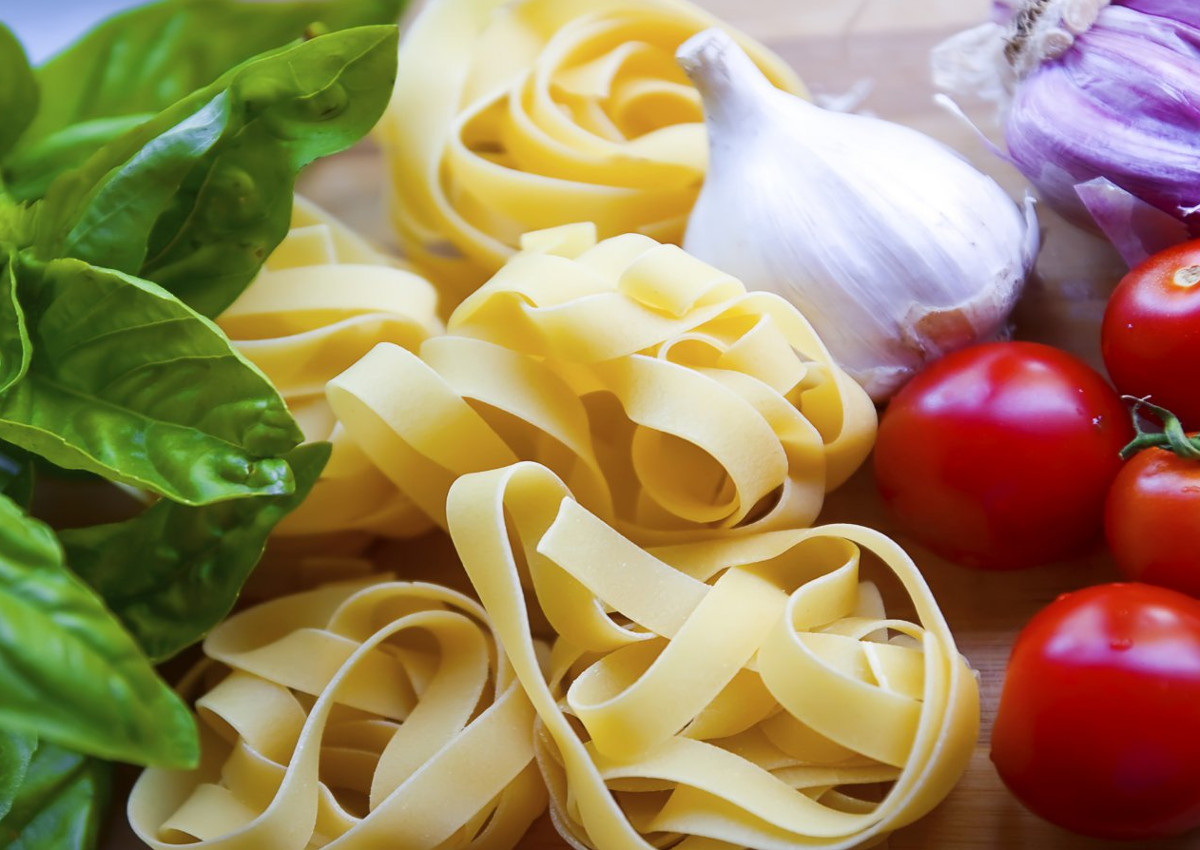In agri-food market, Italy ranks as one of the top exporter to Japan. In fact our country is leading in the food categories that are typical of the Mediterranean Diet (preserved tomatoes, olive oil and pasta) where Italy steadily ranks among the top 5 supplier countries to Japan.
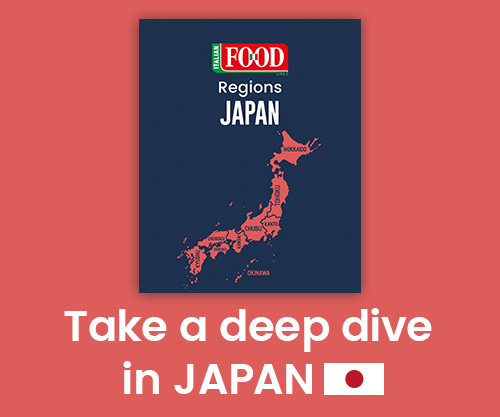
Read more about Italian food in Japan
OLIVE OIL
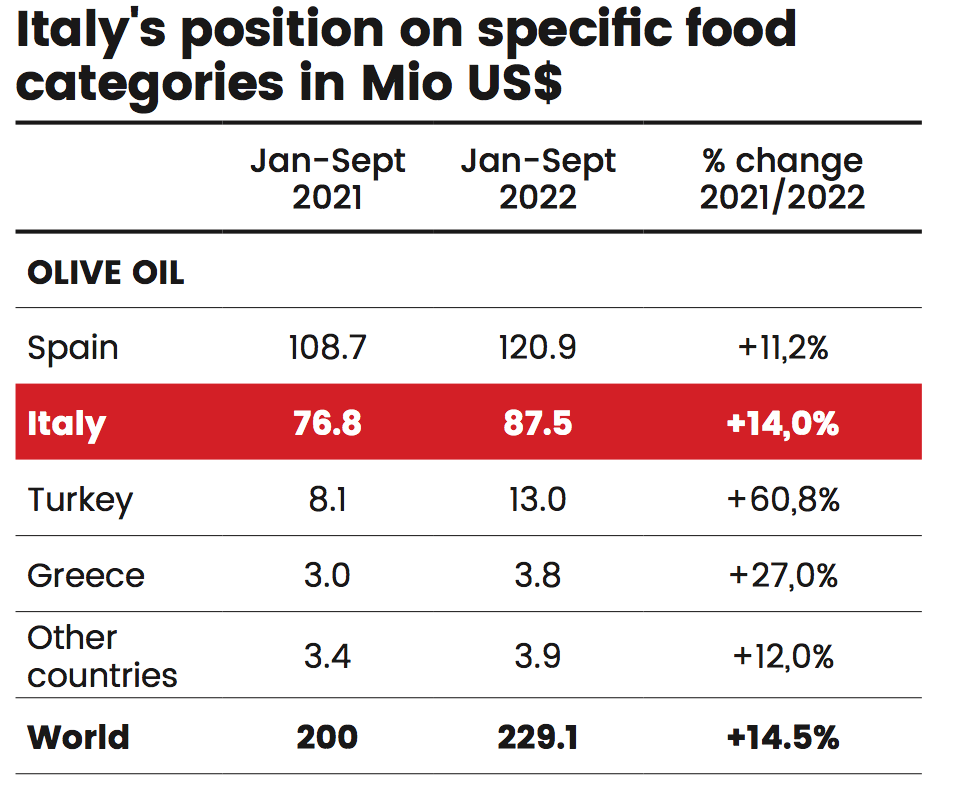
Source: Agrifood Monitor on UN COMTRADE data
The second most significant category of Italian f&b imported from Japan is olive oil. Italy, with 87.5 million US$ export sales in the first nine months of 2022, ranks second behind Spain.
In the first nine months of 2022, the increase in Japan’s olive oil imports was generalized (+14.5%) and involved all major competitors.
Italy’s growth (+14%) was higher than that of Spain (+11.2%) and was in line with the more general market growth. Italian olive oils, strengthened by the reputation of their brands, are imported at a higher average price than Spanish oils, and at a time of rising inflation this circumstance affects Italian items compared to Spanish ones.
The different price levels among countries also explains the strong import performance of two smaller competitors such as Turkey (+60.8%) and Greece (+27%), which, thanks to lower prices, have strengthened their competitive position in the Japanese market. Italy and Spain, however, remain the main suppliers to the Asian country.
The consumption of olive oil in Japan is still a niche, because the use of other oils (sunflower, corn) for cooking food is still much more widespread.
However, the consumption of olive oil is gradually gaining momentum, a fact that is expected to increase in the near future due to the demand of the younger generation. In 2023, sales of vegetable oils are estimated to amount to 219.8 billion JPY (Japan Yen) or about 1.6 billion US$. Olive oil today accounts for about one-fifth (19%) of this market. (Source: Euromonitor)
TOMATO PRESERVES
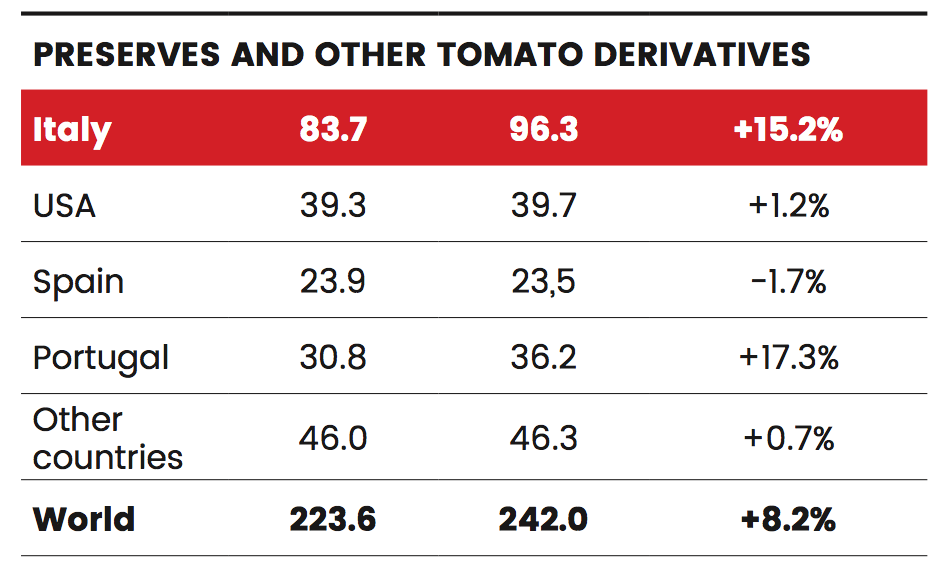
Source: Agrifood Monitor on UN COMTRADE data
In the first nine months of 2022, Italy exported tomato derivatives worth US$96.3 million. Amid a general growth in imports over 2021 (+8.2%), Italy stands out to be, together with Portugal (+17.3%), the most dynamic country with a double-digit increase (+15.2%) in the overall product exported to Japan.
Typicality drives the growth of Japanese imports of Italian tomato derivatives (39.8% of imports): Italy’s core business is peeled tomatoes.
In detail, in 2021, Japan imported US$93.6 million worth of peeled tomatoes from Italy versus US$18.5 million worth of tomato paste imports, which is about one-fifth less.
In the peeled tomato segment, therefore, Italy holds an almost monopolistic position over global competition. The Japanese place great importance on the origin of the tomato, in a scenario where the high reputation of the Mediterranean diet also drives this condiment.
PASTA
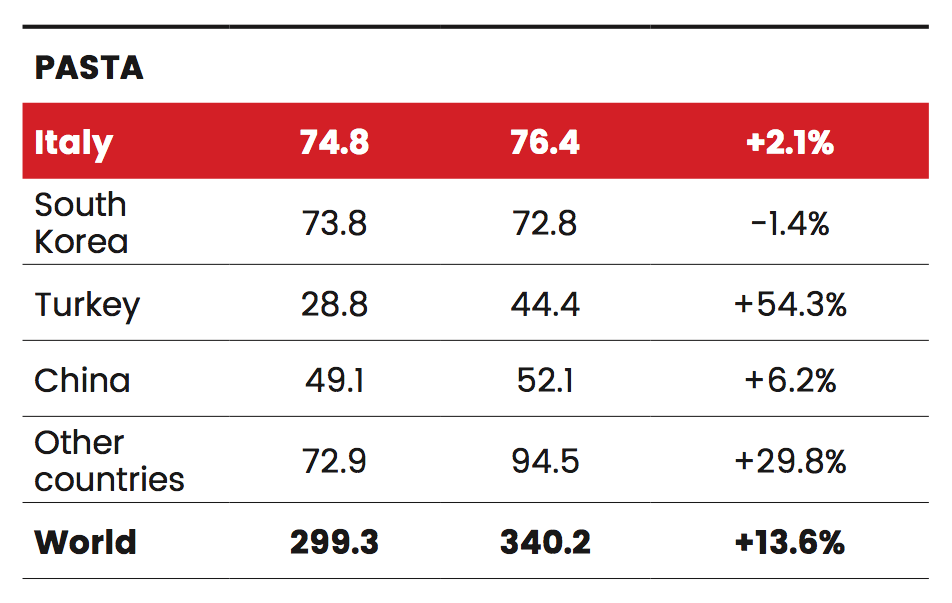
Source: Agrifood Monitor on UN COMTRADE data
The third category of Italian foods imported from Japan is pasta, which, like canned tomatoes and olive oil, is a characteristic ingredient of the Mediterranean diet.
In the first nine months of 2022, 22.5% of Japan’s pasta imports came from Italy, compared with 21.4% from South Korea.
Italy, from the perspective of global trade, has no direct competitors, not even Turkey, whose pasta has different characteristics than Italian pasta.
In Asian cuisine, the ways of preparation and the raw material used are different from those in Italy. The pasta imported from the two Asian countries (South Korea and China) ranked among the top 4 players is not a successor to Italian pasta (based on quality durum wheat semolina), so there is no direct competition in terms of quality and, as a result, also in terms of price.
Italy has a kind of monopoly on the Japanese market, which can be strengthened by expanding the consumer base that prefers Italian pasta to traditional Japanese kanmen.

